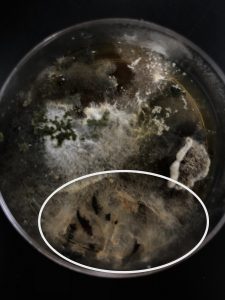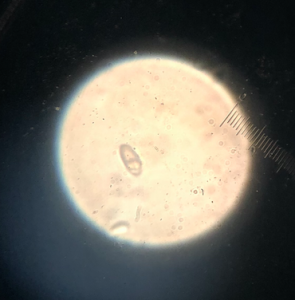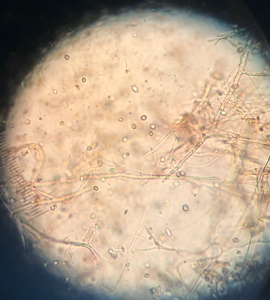Possible ID: Trichothecium
Classification:
Phylum Acscomycota
Class Sordariomycete
Order Hypocreales
Family Incertae sedis
Isolation and culturing methods:
Isolated from an agar plate that was used for a prior lab and was labled “TriB.” However, because it was not pure, Trichothecium grew on it. A small volume of hyphae of this was excised for the agar and transferred to achieve a pure culture.
Culture appearance and growth
The culture looked pink/rosy with white hyphae growing out of it. The hyphae are around 4-5 micrometers wide.
Spore production
The spores are enclosed in conidiospores around 12 microns long and 7 microns wide. The condiospores itself are septate; It looks as if it was 2 spores stuck together. This is a defining characteristic of trichothecium.
Collector: Manya Group: RM2S



On April 23, 2018, the PCR results returned and the genetics of this fungi was analyzed. There were two species that were similar in sequence to this: Leptosphaerulina and Pithomyces. Both of these species are in the class Dothidoeomycota and I had wrongly identified this into class Sordariomycota. Both of these have similar conidiospores so that was an identification error. However, when looking at NCBI Blast’s taxonomy report, it showed that this fungus is part of either uncultured fungi or uncultured Ascomycota.